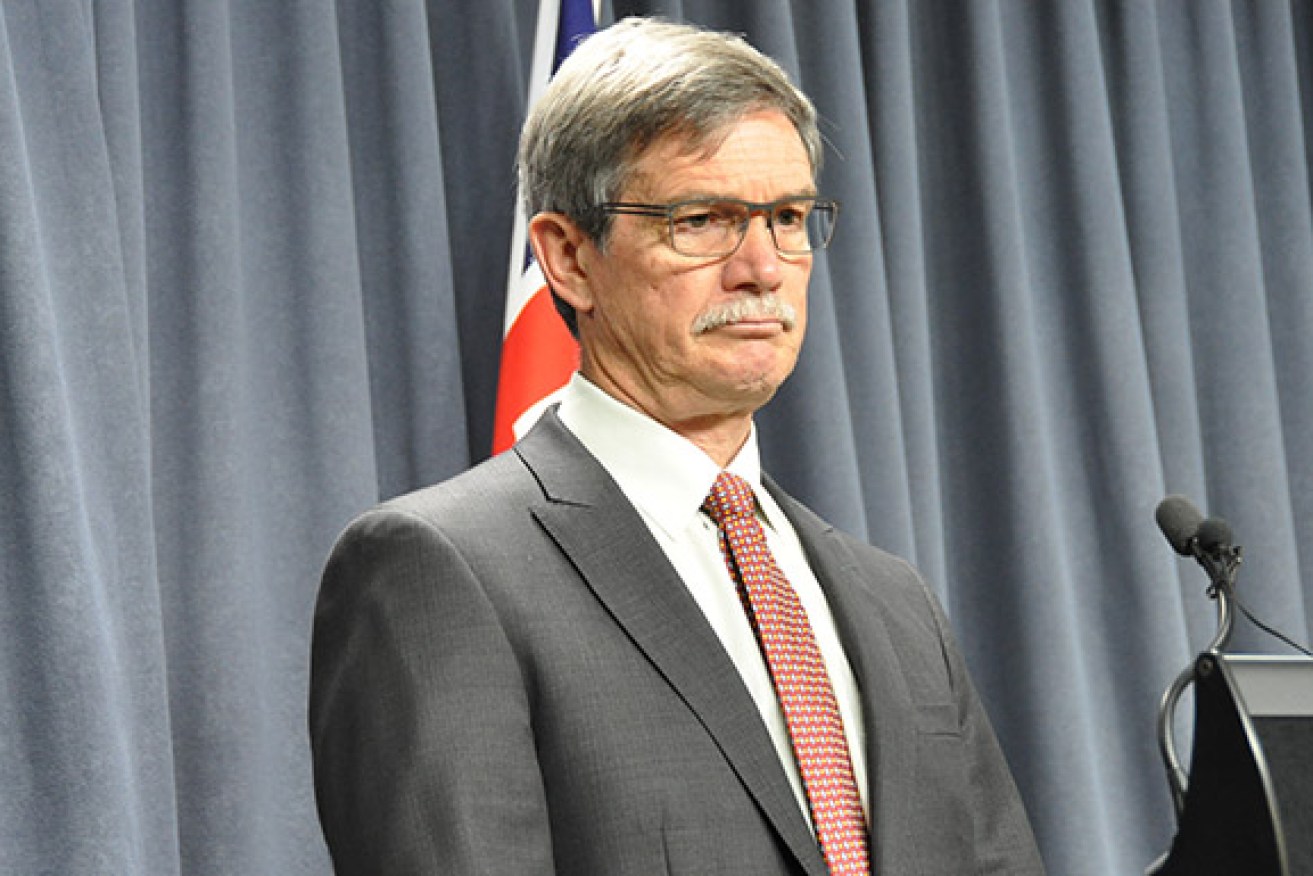WA talks tough on GST share

AAP
Western Australia is threatening to stop co-operating with the Commonwealth if it does not get a larger share of the GST pool.
The threat comes as state and territory treasurers gather in Canberra today for a meeting with federal counterpart Joe Hockey.
WA is caught in a revenue pincer driven by the collapse in the iron ore price — from over $120 a tonne two years ago to $47 on Wednesday — which has seen $2 billion in mining royalties stripped from the state’s coffers since December.
• Tech giants playing us for mugs
• Govt ignores climate change
With its share of the GST calculated on the two-year-old price, WA now gets only 38 cents in every dollar collected in that state.
WA Treasurer Dr Mike Nahan says that is unprecedented.
“Since 1942 no state has ever got less than 80 per cent of its share back,” he said.
“Since the GST was introduced in 2001, no state has got below 82 per cent. Except us.”
The West fears that under the Commonwealth Grants Commission formula, its tax share could drop as low as 30 cents in the dollar, and wants the price lag stripped out of future calculations.
But that would come at a cost to other states.
Asked what his state could do if it did not get what it saw as a fairer share of GST revenue, Dr Nahan said: “Basic non-cooperation”.
“It’s like living in a colony,” he said.
“It’s like colonialism. You pull the money out and not be reasonable about re-investing.”
He said WA was now facing the perversity of having to borrow to fund its commitments to other states.
“This year (2015-2016) under the Grants Commission process, we will have to borrow in the vicinity of $500 million to redistribute iron ore royalties that don’t exist to the other states,” Dr Nahan said.
Hockey under pressure from WA MPs

Joe Hockey says he’s concerned about the WA economy. Photo: AAP
Federal Treasurer Mr Hockey has been lobbied by WA’s Coalition MPs and senators to give their state a better deal.
“I have concerns about what is happening to WA,” he said.
“WA’s been hit very hard, not just by falling iron ore prices, but by falling GST revenue.”
The Grants Commission decides how the Goods and Services Tax is divided between the states and territories based on the principle that all Australians should have access to equivalent services.
The formula for arriving at that is complex, but it takes into account the capacity of a state to raise its own revenue, and rewards poorer states at the expense of those with more money.
For every $5.60 given to the Northern Territory and $1.60 given to Tasmania, WA gets just 38 cents, Victoria 88 cents and NSW 97 cents.
Any attempt to change the existing formula would be bitterly resisted by the smaller states.
SA adamant current system must stay in place
South Australian Premier Jay Wetherill said his Treasurer had been sent to Canberra with clear instructions.
“And that is that the current system, which is all about fairness, about one nation, ensuring that you get similar services wherever you live in this nation, is upheld,” he said.
Tasmania’s Growth Minister Matthew Groom agreed.
“We’ve made it very clear on the GST that we will advocate strongly for a pro-Tasmanian outcome and that we don’t support any changes to the carve up,” he said.
Dr Nahan said he doubted treasurers from smaller states could be talked into changing the Grants Commission formula, so it was up to the Commonwealth to show some leadership.
“I hope for a good outcome but clearly in a system like this where you are forcing a state, during difficult times, to borrow money to redistribute to other states… it’s a dysfunctional system,” Dr Nahan said.
With mining royalties from iron ore accounting for 20 per cent of WA’s budget, the collapse in its price of iron ore has hammered the state.

Iron ore export volumes are expected to keep rising, but prices have slumped.
State loses $70 million every time ore price drops by $US1
It is hard to be exact in how much money it is bleeding from its Treasury, because the ore is priced in US dollars and that is affected by fluctuations in the exchange rate.
However, a rough rule of thumb is that every US dollar shaved from the iron ore price cuts $70 million from WA’s budget.
That state’s most recent revenue estimates were based on an ore price of $75 a tonne.
It is now about $47 and that striped about $2 billion of expected revenue from the west’s coffers since December.
Dr Nahan said if smaller states demanded the GST pool stay as it is, it would destroy growth in his state.
“If we continue that you’re eating the golden goose and you’re eating it alive,” he said.








